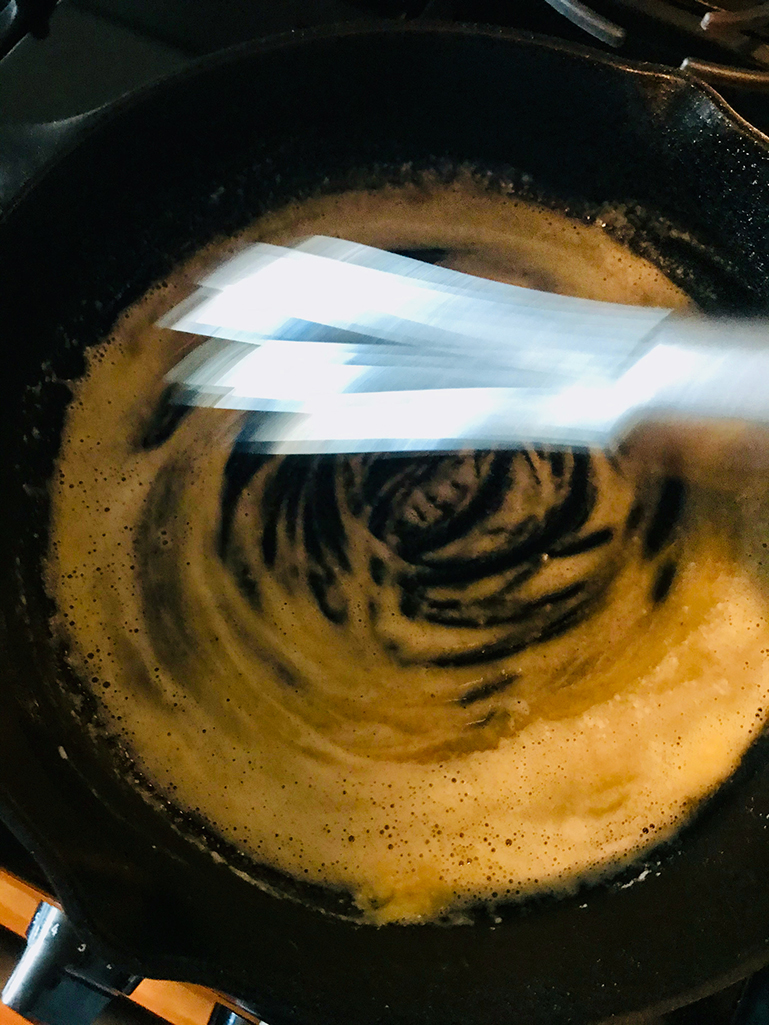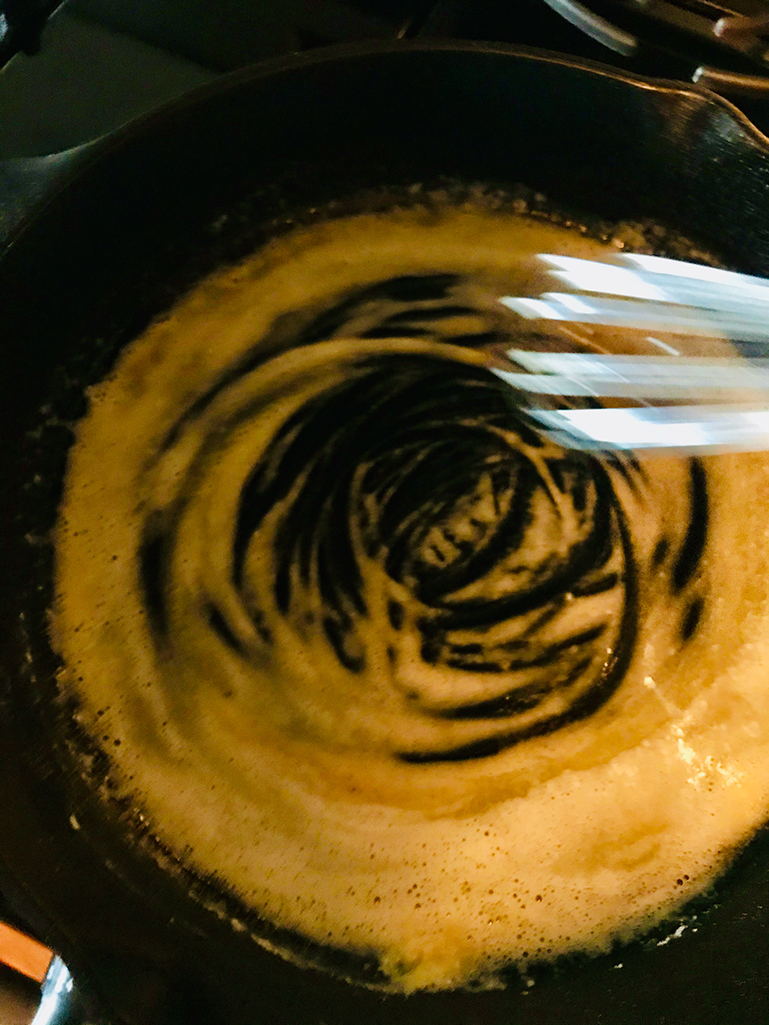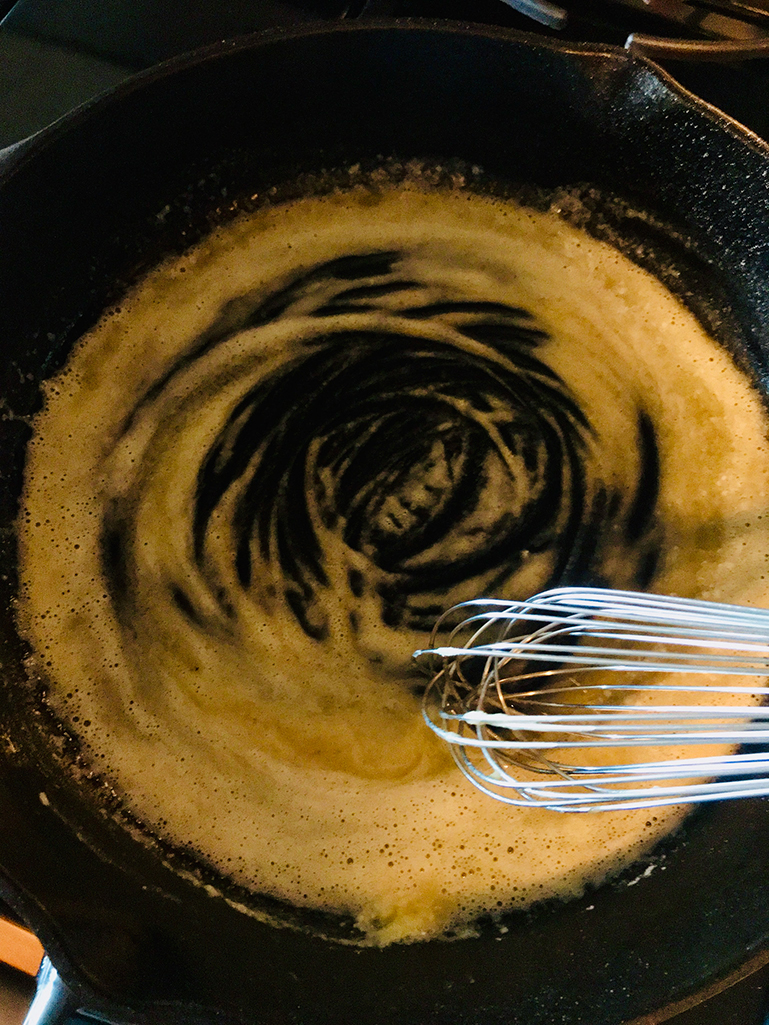"Kitchen Metaphysics and Ntzoke Shange's if i can cook/ you know god can" was published in Active Cultures' Digest, Issue 09, April 2021.
Images: Photographs by Danielle Davenport.
__
Gabrielle Davenport is an Oakland-raised, Brooklyn-based curator & creative producer whose work centers on forging community through music and food. She is also a writer, musician, and co-founder of BEM | books & more, a new literary home dedicated to food and Blackness, which she and her sister launched as an online bookstore in January 2021. Gabrielle graduated from Barnard College and began her career in arts administration after a stint as a server on an ice cream truck. For the last few years, she has also organized with the Central Brooklyn Food Coop, a Black-led food sovereignty project aiming to establish healthy & affordable grocery options in Central Brooklyn. Some of Gabrielle's credits include: BRIC Celebrate Brooklyn! Festival, Mile-Long Opera, Joe's Pub, The Hum, and globalFEST. She also produced a parade with artist Carrie Mae Weems at the Kennedy Center in 2019.
Danielle Davenport, co-founder of BEM | books & more, is a writer and actor based in Brooklyn.
Images: Photographs by Danielle Davenport.
__
Gabrielle Davenport is an Oakland-raised, Brooklyn-based curator & creative producer whose work centers on forging community through music and food. She is also a writer, musician, and co-founder of BEM | books & more, a new literary home dedicated to food and Blackness, which she and her sister launched as an online bookstore in January 2021. Gabrielle graduated from Barnard College and began her career in arts administration after a stint as a server on an ice cream truck. For the last few years, she has also organized with the Central Brooklyn Food Coop, a Black-led food sovereignty project aiming to establish healthy & affordable grocery options in Central Brooklyn. Some of Gabrielle's credits include: BRIC Celebrate Brooklyn! Festival, Mile-Long Opera, Joe's Pub, The Hum, and globalFEST. She also produced a parade with artist Carrie Mae Weems at the Kennedy Center in 2019.
Danielle Davenport, co-founder of BEM | books & more, is a writer and actor based in Brooklyn.
“Until the taste of one's roux overwhelms your senses, makes you silly with gluttony, I guess the roux isn't quite right."
—Ntozake Shange
You're leaning against the stovetop, one foot perched on the other so that from a short distance, your legs look like the number 4. You close your copy of if i can cook/you know god can, and in one well-grooved gesture, turn to dip a spoon into the pot. Steam rises to flirt with the peach fuzz on your cheeks. The shade of bubbling brown looks about right and the fragrance has made you dizzy as you get closer to tasting what you've made. Your eyes roll up toward the sky and all you can think of is the rich curl of the roux on your tongue, accepting the minor scald as a sacrifice to this transcendent concoction and the meal to come. Even still, it could use another few minutes and a dash of this or that before serving as the base of your dinner.
You tinker by feel and this time bring the tasting spoon to the lips of a loved one who has appeared at your side; a plume of buttery steam escaped from the pot, bellowed through the house with no mess, and planted itself in their chest. In this manner, each person is retrieved from their corner of the home and comes with their own declaration of what's missing, an admiration of what's there, or both. You're just about dancing with delight as you witness their sojourn with what you've cooked up—and this time it hits every mark. You're ready to build your gumbo.
——
Every time I encounter Ntozake Shange on the page, I find myself reading aloud to get more of my senses involved. I want to know the mouthfeel of her language and it never disappoints. She offers that indulging in the sensuality of everyday life, alone or together, is essential to repairing the spiritual degradation that can erode Black folks unless particular care is taken. The moment of a beloved tasting what you have committed your hands and soul to making reminds: whatever goes on outside the house can't rock the sanctity of the love that lives within. The ritual of feeding and being fed is at once fundamental and full of potential for world-building in our own image, even if only in the tiny universe of a home kitchen.
In if i can cook/you know god can, Shange expertly weaves historical analysis into her prose, contextualizing the culinary heritage of Black folks with concepts like banzo, a Portuguese word describing the "mortal melancholy" of enslaved Africans after experiencing the Middle Passage. Banzo was the "will to die" displayed by our ancestors who elected to put themselves to rest instead of being worked to death by inhumane whites. Shange suggests that across the contemporary diaspora, we find moments of jubilation and togetherness that our foremothers remembered but could no longer access after arriving on the other side of the Atlantic:
"Cooking is a way of insisting on living, much in the same way that banzo was a way to refuse a life without the flavor of freedom. When we are hungry for life, we search out spices, aromas, and texture to entice and please those around us."
Now we cook to say we're here, and feed each other to say we're staying. We can and will sustain ourselves with recipes like a roux—a foundational sauce of flour and fat that often holds family secrets and the very stuff of identity.
The subtitle of Shange's document of the love expressed through creation and consumption, delicious in its looseness and precision, is African American Food Memories, Meditations, and Recipes. She assumes that "you do, hopefully, know how to shell and clean shrimp," and describes a New Year's Eve trip to the grocery store to make her five-year-old a spread that recalls the celebrations of her own childhood. From picking ingredients at the market to having hands in raw fish, the sensory scaffolding of preparing a recipe—which may have a name in Spanish, English, and Portuguese, and boast versions enjoyed on three continents—seems to both ground her in the immediate and draw connections to who she might have been if her people had landed in another "New World" territory. She invites us to sit with the same. Shange addresses us as fellow cooks and eaters, compatriot travelers through time and across borders, getting familiar with some of her most favored dishes and the legacies wrapped up in their arrival on our plates. She gives us matter-of-fact poetry to grapple with the metaphysical experience of being Black in the diaspora, and I savor it every single time.




